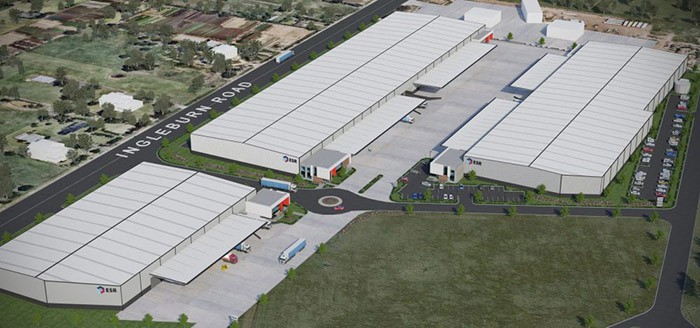
ESR has found fresh financing for its Aussie pipeline
Singapore’s sovereign wealth fund has gone back for its fourth helping of ESR warehouses this year with GIC now committing A$480 million ($337 million) to a logistics development partnership in Australia, according to a stock exchange announcement on 24 September.
The $453 billion sovereign fund will be upping its stake in the ESR Australia Logistics Partnership (EALP) to 80 percent with the news coming less than three months after it closed on an initial commitment to take a 45 percent slice of the core-plus platform. Hong Kong-listed ESR will retain a 20 percent stake in the vehicle, according to the company statement.
The fresh backing from GIC comes as the steadily rising returns from logistics investments continue to draw institutional investors looking for safe acquisitions in the wake of the COVID-19 pandemic.
“Be it an equity group or a sovereign wealth fund, all investors are reallocating capital, out of everything and into industrial,” said Stuart Ross, head of Southeast Asia Industrial and Logistics at JLL in Singapore. “GIC has had success with the likes of GLP and Goodman, so they know what they’re doing. ESR fits in with that group, and they maintain great relationships with investors.”
Core-Plus and Development Commitments
ESR launched EALP in March to raise A$1 billion in equity, with the venture seeded with a 20-asset portfolio valued at A$715.6 million. The two companies closed on that initial agreement in July.

Phil Pearce of ESR Australia will be doing some more Zoom calls with Singapore
The new deal will reduce ESR’s current capital commitment to the partnership to A$120 million, although official statements earlier this year by the company pegged the value of the build-to-hold partnership at up to A$1 billion, which could potentially boost that investment figure.
The transaction is the latest in a series of commitments to ESR joint ventures, partnerships and pooled funds that have seen the Warburg Pincus-backed pan-Asian developer and fund manager raise $2.4 billion so far in 2020.
In June, ESR and GIC had teamed up for the A$1 billion ESR Australia Development Partnership (EADP), which takes aim at opportunities to develop new facilities or upgrade existing ones around Sydney, Melbourne and Brisbane. GIC had committed A$400 million to that venture.
ESR had started off the year with a $500 million China development joint venture with that also backed by GIC. Then it followed up in April with a $1 billion JV with APG of the Netherlands and Canada’s CPPIB to develop facilities around Seoul and Busan, South Korea.
In July ESR signed up Canadian insurer Manulife to a RMB 1.7 billion China logistics JV and then in August announced a $368 million Japanese joint venture with AXA Investment Managers to purchase a Tokyo-area warehouse leased to Amazon.
“Investors like ESR are deploying capital into new areas where there’s more e-commerce growth and rising digitisation. ESR will grow aggressively in those markets,” noted Ross.
Lots of Leasing in Japan
While Phil Pearce’s team has been busy at ESR Australia, the company’s Japan operation announced on the same date that GIC’s new commitment was revealed that it had pre-leased an entire distribution centre near Tokyo.
Japanese third-party logistics firm Nakano Shokai has agreed to lease the entire ESR Toda Distribution Centre in Saitama prefecture, near Tokyo, with the new tenant set to take up occupancy on 1 October.
“We are excited to establish this collaboration with Nakano Shokai with the close of a full-building lease at our new development in Greater Tokyo,” said Stuart Gibson, ESR co-founder and co-CEO, in a statement.
The 875,000 square foot (81,290 square metre) lease comes less than two months after a logistics unit of industrial group Daiwa agreed in August to take up an 840,866 square foot warehouse near Tokyo prior to its expected completion in April of next year.
A few months earlier, ESR leased out almost 780,000 square feet — nearly half — of its Kuki DC near Tokyo to Amazon.
The platform has leased roughly 9.7 million square feet so far in 2020, and maintains a 91 percent occupancy rate across its portfolio in China, Japan, South Korea, Singapore, Australia and India, according to company figures.
Leave a Reply